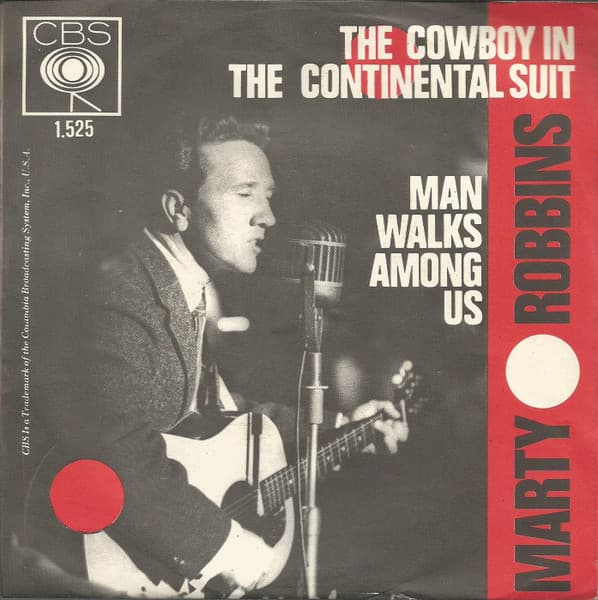
A Melancholy Ballad of Lost Identity and Fading Dreams
Ah, the 1960s. A time of rapid change, of societal shifts, and of course, a soundtrack that perfectly captured the evolving American landscape. Among the titans of country music who navigated these turbulent waters was the incomparable Marty Robbins. Known for his smooth baritone, masterful storytelling, and a repertoire that spanned everything from gunfighter ballads to Hawaiian melodies, Robbins had a unique knack for capturing the human condition. And in 1966, he delivered a poignant masterpiece that, while perhaps not his biggest chart-topper, resonated deeply with those who understood its subtle heartache: “The Cowboy In The Continental Suit.”
Released as a single, the song found its place on the Billboard Hot Country Singles chart, peaking at a respectable, though not blockbuster, No. 34. For many artists, this might have been considered a modest success, but for Marty Robbins, whose career boasted an impressive string of No. 1 hits and Top 10 entries, it spoke to a different kind of impact. It wasn’t a raucous anthem or a catchy pop tune; it was a quiet, introspective piece that invited listeners to sit and reflect. And reflect they did, particularly those who felt the pang of a world moving on, leaving behind cherished traditions and familiar ways.
The story behind “The Cowboy In The Continental Suit” is, in many ways, the story of America in the mid-20th century. It speaks to the inexorable march of progress, the urbanization that drew people from rural roots to bustling cities, and the often bittersweet compromise of adapting to a new environment while holding onto a fading past. Robbins, ever the keen observer of life, crafted a narrative that perfectly encapsulates this transition. The “cowboy” in question isn’t a hardened ranch hand; he’s a man who has traded his boots and spurs for a “continental suit,” a symbol of sophistication and urban living. Yet, beneath the polished exterior, his heart still yearns for the open range, for the simplicity and honesty of a life that is no more.
The meaning of the song runs deep, touching upon themes of identity, sacrifice, and the often-painful process of reinvention. It’s about a man who has made a necessary transformation to survive, to thrive even, in a new world. He’s found success, perhaps even comfort, but at what cost? The echoes of his past, the phantom scent of sagebrush and the phantom jingle of spurs, haunt him. He’s a man caught between two worlds, and the “continental suit” becomes a metaphor for the compromises we make, the roles we play, and the parts of ourselves we sometimes leave behind in the pursuit of a different future.
Listening to “The Cowboy In The Continental Suit” today, particularly for those of us who have seen a few more sunsets, it evokes a powerful sense of nostalgia. It’s a gentle reminder of the changes we’ve witnessed, the landscapes that have shifted, and the ways in which we, too, have had to adapt. It’s a song that understands the ache of remembering simpler times, even as we embrace the complexities of the present. Marty Robbins’ delivery, as always, is impeccable – a subtle melancholy in his voice that conveys a profound understanding of the human heart.
It’s not a lament of regret, but rather a quiet acknowledgement of a life lived and the paths taken, with all their inherent trade-offs. The song’s instrumentation, sparse and understated, allows Robbins’ voice and the lyrical narrative to take center stage, drawing the listener into the protagonist’s quiet contemplation. It’s a testament to Robbins’ artistry that he could craft such a resonant and enduring piece that continues to speak to the universal experience of change and the enduring power of memory. Indeed, for many, this song is more than just a tune; it’s a shared sentiment, a whispered understanding across generations of what it means to carry your past with you, even when you’re dressed for an entirely different future.